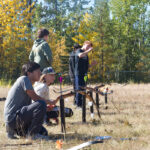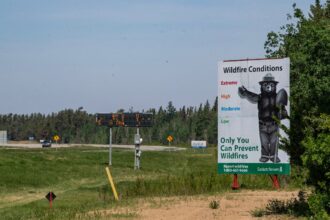In a sharp escalation of tensions between local government and provincial health authorities, Tumbler Ridge Mayor Don McPherson has publicly condemned Northern Health’s decision to reduce on-call hours at the community’s health centre. The move, which took effect September 1st, has sparked widespread concern across this resource-dependent community of 2,400 residents nestled in British Columbia’s eastern foothills.
“This isn’t just a reduction in service—it’s a potential risk to public safety,” Mayor McPherson declared during an emergency council session. “When you’re dealing with industrial accidents or medical emergencies in remote locations, every minute counts. These cuts fundamentally undermine our community’s healthcare security.”
The controversial changes reduce after-hours emergency coverage at the Tumbler Ridge Health Centre from 24/7 service to a limited 8 a.m. to 8 p.m. schedule. Northern Health officials cite chronic staffing shortages and unsustainable operational costs as primary factors behind the decision, but local officials remain unconvinced.
District officials revealed they received minimal advance notice of the reduction, learning of the changes just days before implementation. This communication gap has fueled frustration among council members, who argue that meaningful consultation could have yielded less disruptive alternatives.
“What’s particularly concerning is the potential impact on our industrial workforce,” noted Councillor Darryl Krakowka, referring to the hundreds of employees working in nearby coal mining and natural gas operations. “These industries operate around the clock, and accidents don’t conveniently happen between 8 a.m. and 8 p.m.”
Northern Health has attempted to reassure residents that emergency protocols remain in place, with patients directed to call 911 during off-hours for assessment and potential transfer to larger facilities in Dawson Creek or Fort St. John—communities approximately 120 kilometers away.
“We understand the community’s concerns and are working diligently to address staffing challenges,” said Northern Health spokesperson Rebecca Scott. “These measures, while difficult, are necessary to ensure sustainable healthcare delivery across our entire service region.”
The service reduction highlights broader challenges facing rural healthcare delivery across Canada, where communities increasingly struggle to recruit and retain medical professionals. According to the Rural Health Services Research Network, nearly 40% of rural Canadian communities report significant barriers to accessing emergency medical services—a statistic that resonates deeply in Tumbler Ridge.
Economic development officials warn the healthcare reductions could hinder efforts to attract new residents and businesses to the community, which has worked to diversify its economy following boom-and-bust cycles in resource industries.
“When families consider relocating to a community, healthcare access ranks among their top priorities,” explained economic development officer Jordan Wall. “These service reductions send precisely the wrong message at a critical time in our economic recovery.”
District officials have requested an urgent meeting with Northern Health’s board and provincial health ministry representatives to explore immediate solutions, including enhanced recruitment incentives for rural practitioners and temporary staffing arrangements with neighboring health authorities.
As this healthcare access debate intensifies, residents are left wondering: in communities built around hazardous resource industries, how do we balance fiscal responsibility with the fundamental right to timely emergency medical care?























